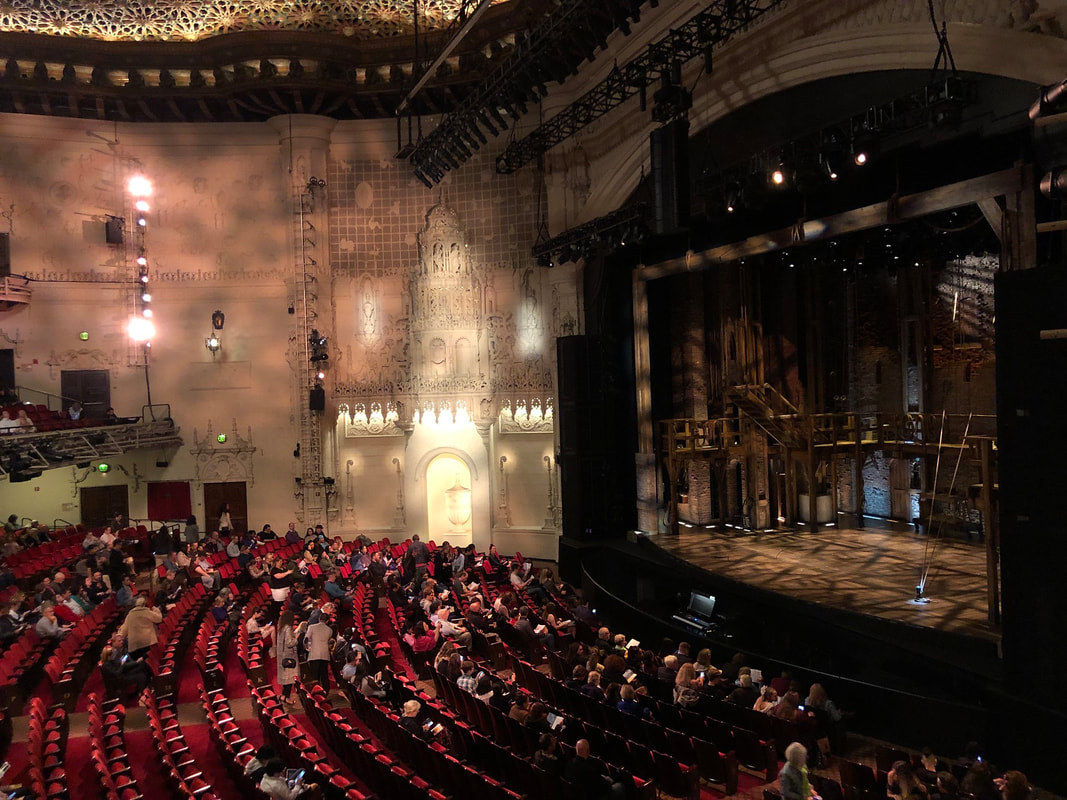|
Looking through the history of American music, it’s easy to see African American influences in art forms that include the traditional spiritual and gospel music, the syncopating rhythms of jazz, and numerous other sound innovations through the generations: ragtime, blues, boogie-woogie, R&B, rock and roll, hip hop, rap, and many more. It’s not too much to say that American music is African American music. The uniquely American form of the popular stage and film musical has also given us works by or about African Americans that are extraordinary in terms of their historical value, artistic quality, or both. Here are summaries of a few of the most outstanding ones from the first half of the 20th century:  Image by Melinda Young Stuart | Flickr 1. TreemonishaTreemonisha (1911) was ragtime composer and lyricist Scott Joplin’s third (and final) work for the stage. The story focuses on the character of Treemonisha, who was found beneath a tree as an infant and adopted as the daughter of a formerly enslaved couple. Joplin’s score blends traditional European opera with his signature ragtime rhythms. Treemonisha also highlights the struggles of the Black culture of its time, including the desire to assimilate into white society while still feeling the pull of African American traditions. The opera was also pioneering for its time in underlining the importance of education. Joplin was never able to stage a full production of Treemonisha. In 1972, an ensemble at Atlanta’s Morehouse College presented Treemonisha, and it received a true full premiere for the general public in 1975 at the Houston Grand Opera. 2. Shuffle AlongShuffle Along (1921) was Broadway’s first full-fledged musical by a Black librettist (the duo of Flournoy Miller and Aubrey Lyles), composer (Eubie Blake), and lyricist (Noble Sissle), featuring an all-Black cast. The production broke records by running for some 500 nights on Broadway, and its “I’m Just Wild About Harry” remains a well-known song today. Poet and historian James Weldon Johnson commented that the show offered a sophisticated portrayal of the love story between the African American leads. The show was revived in 2016 in a completely fresh way. Shuffle Along, or The Making of the Musical Sensation of 1921 and All That Followed offered new choreography by Savion Glover, a new wrap-around book by George C. Wolfe and Audra McDonald in the starring roles. The new work honored the value of the original’s status as a groundbreaking moment in African American cultural history and tackled its complex aspects head-on. 3. Cabin in the Sky Cabin in the Sky (1943), featuring the legendary Lena Horne in her only starring role for MGM, was the first film produced by a major studio with an entirely African American cast. The movie also starred renowned performers like Louis Armstrong, Ethel Waters, and Eddie “Rochester” Anderson. Directed by Vincente Minelli, it was based on the 1940 Broadway show of the same title with music by Vernon Duke, lyrics by John Latouche, and book by Lynn Root. The creators gave voice to a rare work of fantasy and imagination centered on the rich African American folkloric tradition and portrayed by an all-Black cast. “Happiness Is a Thing Called Joe,” as sung by Waters, is among the most memorable and lyrically beautiful songs in Cabin in the Sky. “Taking a Chance on Love” is one of the other still-beloved songs from this classic musical. 4. Carmen Jones Carmen Jones (1954), based on Georges Bizet’s 1875 opera Carmen and with new lyrics in colloquial American speech by Oscar Hammerstein II to Bizet’s music, gave a Technicolor folk operatic treatment to the French classic. While the composer and lyricist were not African American, the entire cast was, including iconic movie star Dorothy Dandridge as Carmen, who works in a parachute factory during World War II in an update of Bizet’s Seville cigarette factory setting. Carmen charms soldier Joe (portrayed by the equally iconic singer Harry Belafonte), with this role also modernized from Bizet’s character of Don José. Dandridge earned the first Oscar nomination ever for an African American performer in the category of Best Actress in a Leading Role. Otto Preminger directed, with Pearl Bailey in another strong performance as factory worker Frankie. Hammerstein’s original 1943 Broadway version of the show was notably revived off-Broadway in 2018 with Anika Noni Rose in the title role. 5. Porgy and BessThe 1935 opera by George Gershwin, Dubose Heyward, Dorothy Heyward, and Ira Gershwin was based on a novel by Dubose Heyward, and was revolutionary for its time, not only for being the first Broadway production with an all-Black cast, but for the incandescent blues-meets-jazz lyricism of George Gershwin’s score. The hits from the musical, and the movie, remain among the most frequently performed in the American musical repertoire: “Summertime,” “It Ain’t Necessarily So,” and “I Got Plenty O’ Nuttin’” are among the most well-remembered.
The poignant story focuses on Bess’ conflicted love for her man, the suffering but proud Porgy, whose disability has driven him to survive by panhandling among the other downtrodden residents of Charleston’s Catfish Row. Porgy’s disability likely reflects that of the author, DuBose Heyward. Bess is also involved with Sportin’ Life and with the possessive Crown. Ultimately, Bess finds sanctuary with Porgy before the two are separated by the connivance of Sportin’ Life and the whims of character and fate. James Robinson directed a notable production of Porgy and Bess as the opening show of the Metropolitan Opera’s 2019-2020 season, with acclaimed operatic performers Eric Owens and Angel Blue in the leading roles. Comments are closed.
|
Photo used under Creative Commons from Marina K Caprara
 RSS Feed
RSS Feed
